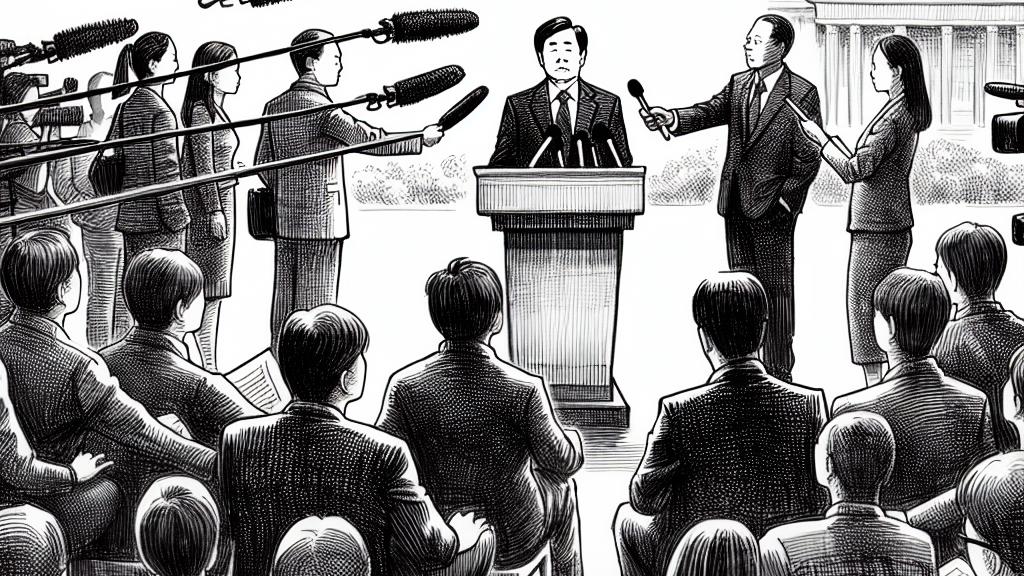Exploring the Concerns Surrounding the Committee's Conclusions in Hyogo Prefecture
Overview
- Governor Saito Motohiko's remarks on committee findings spark significant controversy.
- Experts express concern over the diminishing authority of the investigative committee.
- A strong adherence to committee outcomes is crucial for safeguarding political integrity.

Governor Saito's Press Conference: A Critical Moment
As the curtain fell on 2024, Hyogo Prefecture's Governor Saito Motohiko found himself at the center of intense scrutiny during his final press conference on December 26. This wasn’t just another routine briefing; it had the weight of public interest riding on it. Reporters eagerly asked probing questions regarding the witness interrogations conducted by the Hyogo Prefectural Assembly’s investigative committee. This powerful body, established under local governance laws, is responsible for unraveling allegations of misconduct within the government. However, a dark cloud loomed over the event as legal expert Nishiwaki Kyosuke highlighted Saito's reluctance to fully acknowledge the committee’s authority. Imagine the unsettling possibility: if the governor undermines such a crucial institution, what message does that send about transparency in governance?
Controversy Over Judicial Preference: A Turning Point?
A particularly eye-opening moment came when Saito asserted that questions concerning harassment should ultimately rest in the hands of the judiciary. This proclamation raised eyebrows — and concerns. Let’s take a moment to consider the implications: if the committee delivers its verdict on alleged misconduct and the governor chooses to disregard it, prioritizing legal interpretations instead, where does that leave accountability? For instance, there are echoes of past incidents, such as the resignation of an Osaka mayor following a committee investigation, highlighting how dire outcomes can emerge when committees are allowed to operate freely. Therefore, Saito’s approach might signal a dangerous trend, one where vital checks and balances begin to erode.
The Broader Implications: A Call for Responsibility
Moreover, the impact of Saito’s nonchalant attitude towards ongoing harassment cases cannot be overstated. Recent inquiries demanded he publicly address the online harassment faced by victims’ families; however, his response was little more than a series of vague commitments to future initiatives, devoid of immediate action. This hesitancy not only sours public trust but raises serious ethical questions about leadership principles. Look back at instances like the Tokyo Metropolitan Assembly during the Toyosu market controversy, where acting on committee recommendations led to significant political repercussions. Ignoring such findings could set a perilous precedent, undermining the integrity of democratic processes. After all, if the body designed to safeguard accountability is rendered powerless, what hope remains for the communities it represents?

Loading...